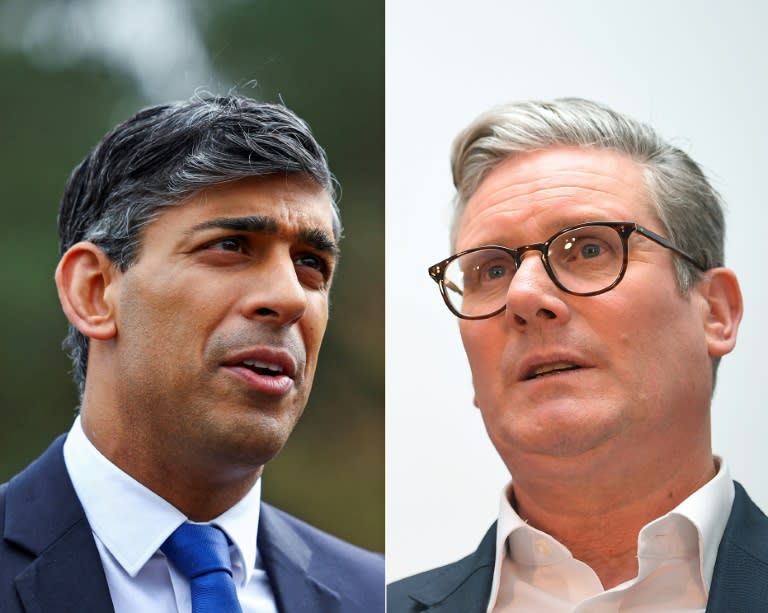UK parliament dissolves ahead of election

The British parliament dissolved on Thursday ahead of a July 4 general election, which looks set to bring Labour to power after 14 years of Conservative rule.
Five weeks of campaigning officially began as 650 seats of members of parliament (MPs) became vacant at one minute past midnight (2301 GMT) in line with the electoral schedule.
The first week of campaigning has seen a shaky start following Prime Minister Rishi Sunak's rain-drenched election announcement, with many observers taking the downpour as a bad omen.
Sunak set the election for July 4, instead of later in the year as had been widely expected, in what observers said was an attempt to regain momentum as his party slides in opinion polls.
After 14 years in opposition, the Labour party now has the chance to win back power with its leader Keir Starmer, a former human rights lawyer, at the helm.
- Mass exodus -
Trailing double digits behind Labour in polls, the ruling party also faced a mass exodus of parliamentarians, some throwing in the towel in the face of bleak chances of victory.
Some 129 MPs have so far announced that they will not be standing for re-election. Among them are 77 Conservatives, an unprecedented exodus for a governing party.
Among the Tories standing for re-election, some have made no secret of their annoyance at having been caught off guard by the July election date.
Steve Baker, Secretary of State for Northern Ireland, stood by his decision to continue his vacation in Greece, saying that he would be preparing his campaign there.
Signs of infighting also spilled into the open with one Tory MP backing a candidate from the right-wing populist Reform UK party in her constituency, before being promptly suspended by the Conservatives.
- Faltering start -
After the election announcement, Sunak travelled across the country, promoting Conservatives as the "safe" option.
His campaign met with some early snags, including a visit to the site where the Titanic was built drawing comparisons between his leadership and captaining a sinking ship.
Doubling down on older voters and right-wing supporters, Sunak's campaign has seen pledges to bring back national service and what is billed as a £2.4 billion ($3 billion) tax break for pensioners.
However, Sunak's week of intense campaigning and bid to surprise the country have done little to boost favour.
Polls put Labour on average at 45% of voting intentions, against 23% for the Tories, suggesting that, given the simple-majority voting system, Labour will enjoy a very large win.
In a bid to turn things around, Sunak is hoping to win points in the scheduled debates with Keir Starmer, the first of which is set to take place next Tuesday on ITV.
- More infighting -
Meanwhile, Labour is seeking to capitalise on the public's weariness with the Conservatives, who have seen five prime ministers since 2016 alongside a slew of scandals and economic woes.
It has tried to focus on its shift to the "natural party of business" after winning the backing of 120 industry leaders this week.
After a resounding defeat under left-wing leader Jeremy Corbyn in 2019, Starmer has pushed the party to the centre in a bid to win back voters, including by purging Corbyn and making moves to root out anti-Semitism.
However, the past week has exposed the long-standing factional splits within the party, with MP Diane Abbott expressing her dismay at the party's desire to bar her from candidacy.
Starmer has insisted that the fate of Abbott, who was suspended last year for comments on racism, had not yet been decided. But the treatment meted out to the highly respected 70-year-old, who has spent 37 years as a member of parliament, has provoked fierce criticism.
Starmer has also faced condemnation from leftist voters who accuse him of rolling back promises he made during his successful leadership campaign.
aks/yad/rlp

 Yahoo News
Yahoo News 
